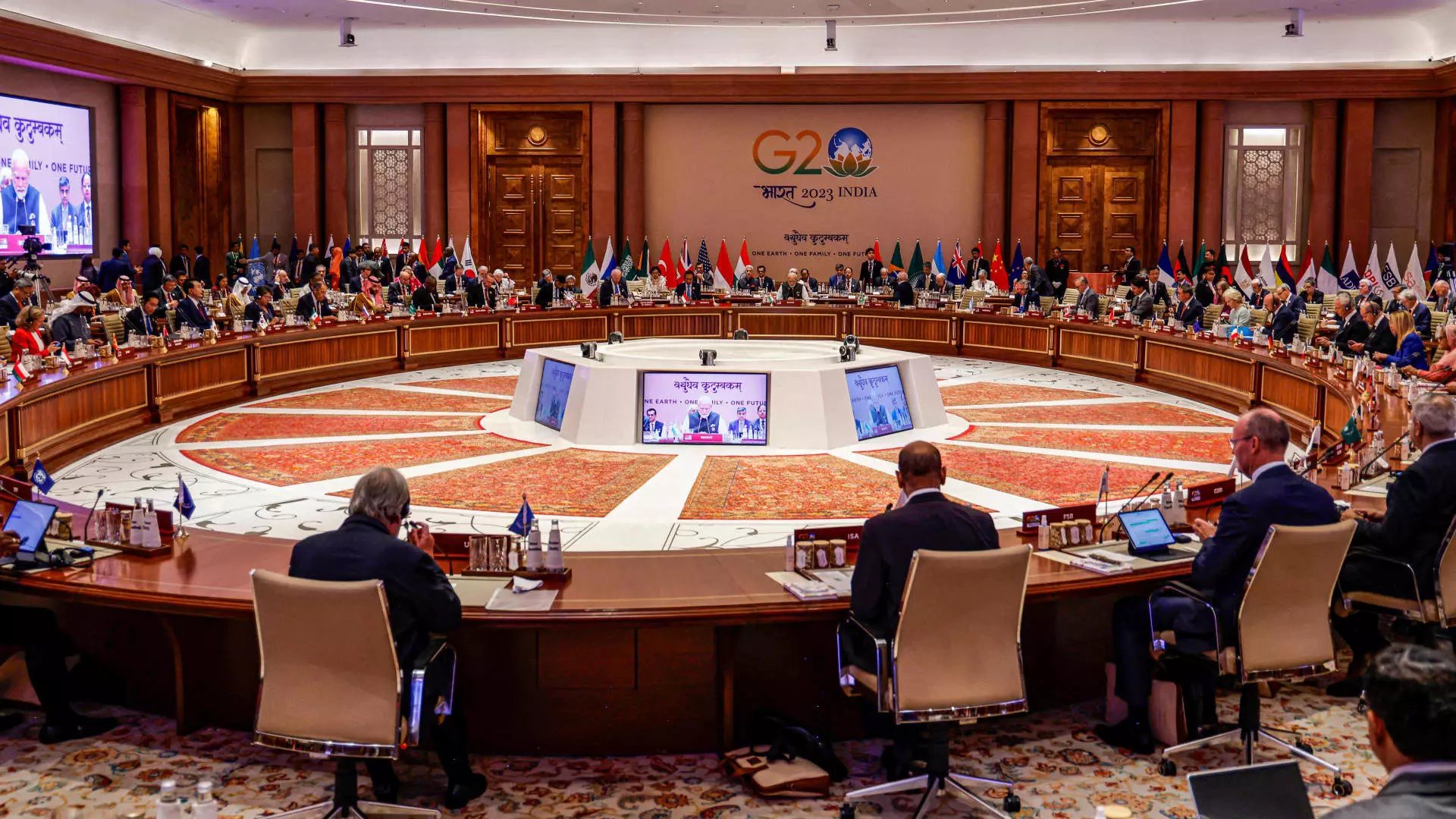The African Union’s admission as a full permanent member of the Group of 20 (G20) is a significant development in global diplomacy. The announcement was made by Indian Prime Minister Narendra Modi at the start of the G20 leaders’ summit in Delhi. This decision highlights India’s commitment to elevating the G20’s focus on the Global South during its presidency. With the inclusion of the African Union, the G20 now has two regional organizations as permanent members, along with the European Union.
A Symbol of Inclusion
Prime Minister Modi characterized India’s G20 presidency as a symbol of inclusion, both within the country and beyond. The concept of “Sabka Saath,” which translates to “spirit of togetherness,” underpinned India’s proposal for the African Union’s permanent membership in the G20. The endorsement of this proposal was met with enthusiasm, as it represents a step towards greater representation of the African continent in global decision-making processes.
Recognition and Support
The admission of the African Union to the G20 garnered widespread support from world leaders. Charles Michel, President of the European Council, expressed his delight at the African Union’s full membership, emphasizing the European Union’s steadfast support for this initiative. The endorsement from global partners highlights the growing recognition of the African Union’s role in shaping the future of international collaboration.
A Strategic Move by India
The G20 leaders’ summit holds particular significance for Prime Minister Modi, as his government seeks to enhance India’s geopolitical standing ahead of upcoming national elections. With China’s economic growth slowing down, many governments, investors, and businesses are turning their attention to India, which the International Monetary Fund projects to be the fastest-growing economy this year. This summit provides India with the opportunity to showcase its commitment to addressing global challenges and positioning itself as a key player on the world stage.
The G20 leaders’ summit agenda reflects India’s emphasis on sustainable development and the needs of developing economies. Priority areas include accelerating climate action, addressing the impact of geopolitics on food and energy security, promoting access to loans for developing nations, restructuring the global debt architecture, and establishing an international framework for cryptocurrencies. These issues are crucial in shaping the direction of global collaboration and ensuring equitable development.
Transforming Global Alliances
India aims to persuade the Global South that its deepening strategic partnership with the United States offers a viable alternative to traditional alliances. From food security to debt resolution, India believes that the Global South can assert its interests and protect itself. Nigerian Foreign Minister Yusuf Tuggar emphasized Africa’s agency in dealing with the West, rejecting the notion of infantilization that has historically plagued the continent. This shift in perception challenges the status quo and paves the way for a more assertive and empowered Global South.
A Diverse Gathering of World Leaders
The G20 leaders’ summit in Delhi brings together a diverse group of world leaders. In attendance are prominent figures such as Canadian Prime Minister Justin Trudeau, French President Emmanuel Macron, Germany’s Chancellor Olaf Scholz, Japan’s Prime Minister Fumio Kishida, Saudi Arabia’s Crown Prince Mohammed bin Salman, Turkey’s President Recep Tayyip Erdoğan, and U.S. President Joe Biden. Their participation reflects the importance of this summit in shaping global collaboration and addressing pressing issues.
Russian President Vladimir Putin and Chinese President Xi Jinping’s absence from the G20 leaders’ summit has raised concerns. Both countries objected to the wording of the summit’s discussions on the war in Ukraine, leading to their decision not to attend. The absence of these key players raises the possibility that a binding communique may not be issued at the end of the summit, which could undermine India’s influence and diminish its domestic messaging. However, Prime Minister Modi remains optimistic about the potential to overcome this crisis of mutual trust.
The admission of the African Union as a permanent member of the G20 represents a significant step towards inclusivity and equitable global governance. Prime Minister Modi’s leadership in promoting the spirit of togetherness and his emphasis on the challenges faced by the Global South highlight India’s commitment to shaping the future of international collaboration. With a diverse range of world leaders in attendance, the G20 leaders’ summit in Delhi serves as a platform for addressing pressing global issues and establishing a new direction for the world.


Leave a Reply